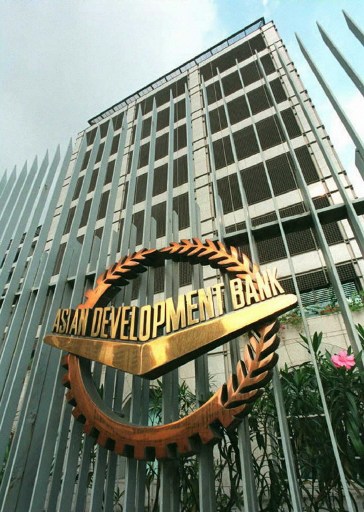Group calls on ADB to stop funding coal energy projects

The facade of the headquarters of the Asian Development Bank in the Philippines. AFP PHOTO
MANILA, Philippines — A pro-environment group has called on the Asian Development Bank (ADB) to stop funding coal energy-based projects ahead of a virtual meeting hosted by the country, claiming that it is a primary driver for pollution in Asia.
The Center for Energy, Ecology, and Development (CEED) explained on Friday that ADB’s renewable energy investments cannot cover the fact that it has engaged in projects to source energy from fossil fuels.
The second stage of ADB’s 53rd Annual Meeting of the Board of Governors, which should have been held in Manila if not for the COVID-19 pandemic, will be held in a virtual platform from September 17 to 18.
“Thanks to the lenient Energy Policy it adopted in 2009, ADB is guilty of having shaped Asia’s energy sector into its carbon-intensive state today,” CEED executive Director Gerry Arances said in a statement.
“No amount of renewable energy investments could cover up the bank’s role in advancing the myth of clean coal and the fact that half of the total installed capacity of power generation projects it funded the past decade are from fossil fuels,” Arances added.
According to CEED, ADB must be responsible for its actions especially since a lot of studies believe that several parts of Asia are susceptible to climate change, including the oft calamity-stricken Philippines.
CEED’s comments about ADB and its involvement in the carbon energy sector are not the first: in fact, in June 2016, the Philippines’ Climate Change Commission asked ADB and other financing firms to stop bankrolling coal energy, to promote a shift to renewable and clean energy.
In 2018, solar power advocates also urged ADB to look at the possibility of funding solar energy projects and research, especially since it is seen as a better alternative to coal power plants which are deemed dangerous for the environment.
Just this September, ADB’s independent evaluation department called on the regional bank to formalize its stance to stop funding coal-fired power plants.
“The critical reflections we from civil society offer today mirror what the bank’s Independent Evaluation Department reported: that ADB needs a new energy policy that accurately responds to the region’s needs,” Arances noted.
“In doing so it must live up to its role in global energy transformation, which it can begin by completely leaving coal in its dirty past,” he added.
Other stakeholders also believe that if ADB moves to stop backing coal energy, it would have a big impact on achieving goals of limiting global temperature rise.
“The Taal volcano eruption, Australian forest fires, floods in Pakistan and Bangladesh, and the typhoons in the USA all struck within a span of 7 months amid COVID-19. If there ever was a time to be climate responsible for ADB, it is now,” Rayyan Hassan, executive director of NGO Forum on ADB, said.
“We as NGO Forum on ADB demand that the ADB Board of Directors and ADB Senior Management take heed of this recommendation and act swiftly towards an immediate end on all coal and coal-related power and forge towards a just transition to limit global temperature rise to the Paris goal of 1.5°C. ADB must end coal, and end it now. We are out of time,” he added.